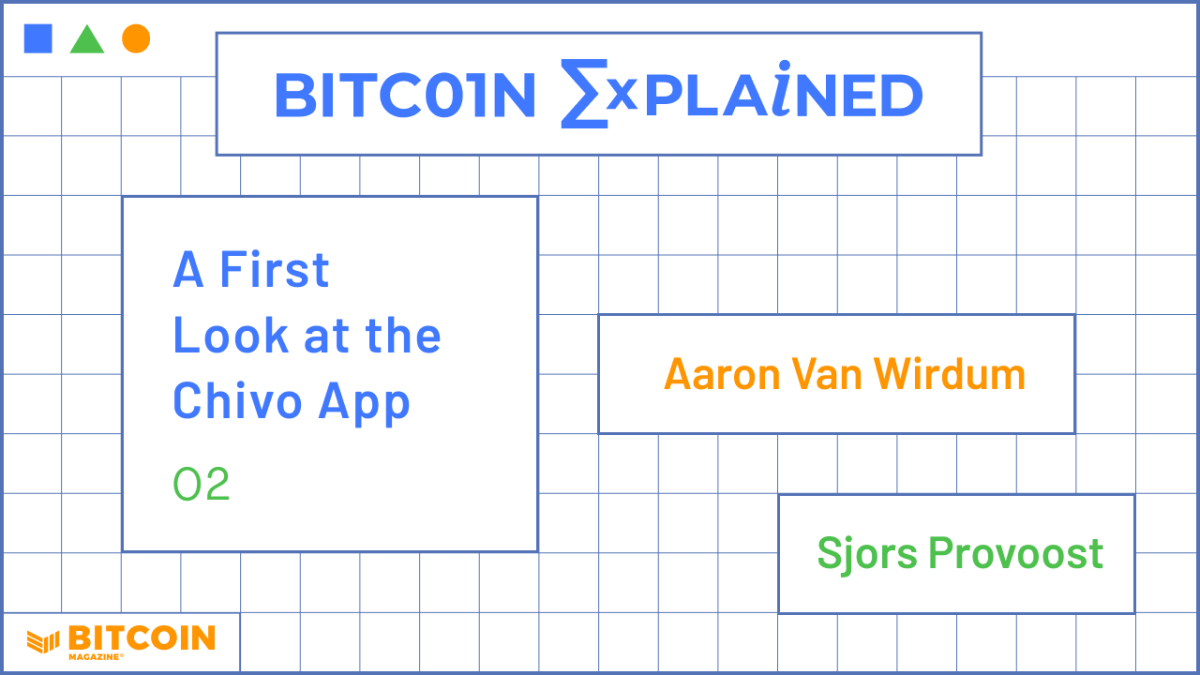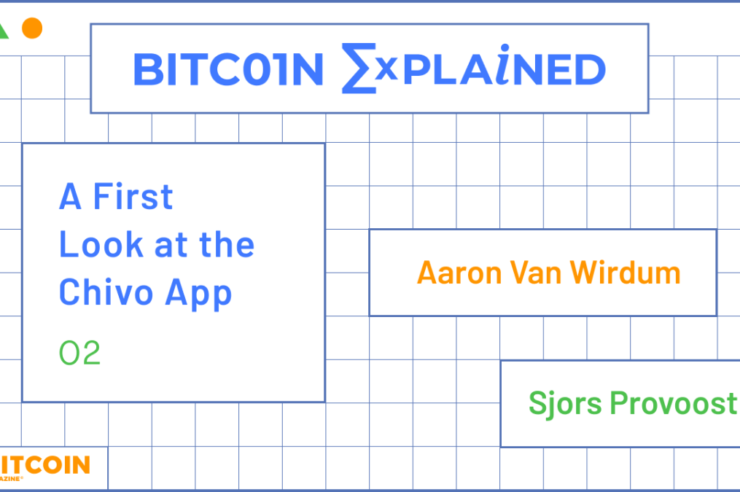
Listen To This Episode:
In this episode of “Bitcoin, Explained” (formerly known as “The Van Wirdum Sjorsnado”), hosts Aaron van Wirdum and Sjors Provoost discussed the Chivo application, the Bitcoin wallet and payment terminal provided by the government of El Salvador.
This episode is a little bit different from other episodes of “Bitcoin, Explained,” because the Chivo app is closed-source software. Instead of analyzing the source code and design of the application, van Wirdum and Provoost had to rely on van Wirdum’s personal experience with the wallet and payment terminal or what he remembers of that personal experience.
“It’s nice when it’s open source and transparent,” said Provoost. “The Chivo system is not really that.”
The episode opens with some general information about the Chivo wallet, such as why it was developed and who developed it (insofar as anything is known about that). Van Wirdum and Provoost went on to discuss van Wirdum’s experiences with the wallet and speculated what that means for the design. After that, they discussed the design of the payment terminal that’s included in the application, and also briefly touched on the Chivo ATMs that have been deployed across the country.
“You could send [bitcoin] to another Chivo Wallet, but not to an external wallet, so any merchant using Chivo would be able to accept it, but any merchant not using Chivo would not be able to accept it,” Provoost said. “Which is the exact opposite of the point of being interoperable.”
Finally, van Wirdum and Provoost discussed the difference in philosophy between the design of the Chivo application and Bitcoin’s free and open-source software culture.



Comments (No)